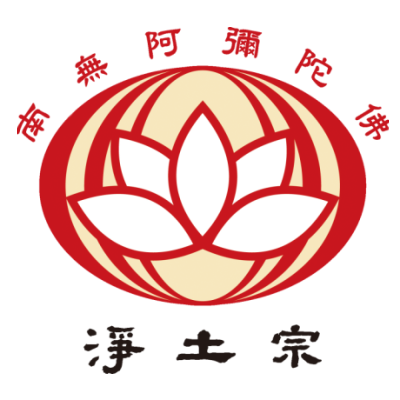Lightning Strikes, Stroke Miraculously Healed? —A True Account of the Buddha-Name’s Wondrous Power
| Recorded by layman practitioner, Li. |
Venerable Jingben, with great compassion: Namo Amitabha Buddha
Over the past few months I have been watching the Dharma talks on your YouTube channel. Your skillful teaching, vivid language, and lively examples draw us in and fill us with Dharma joy. I am truly grateful, Venerable Master!
Because you often relate true stories of miraculous responses to the Buddha-name in order to strengthen our faith in Nianfo, I would like to share a recent experience of mine for your compassionate review.
On 6 April 2025 my wife suggested that we visit the Art Museum in Taiwan. While strolling around, I noticed a roughly seventy-year-old homeless man sitting there with a recording of “Namo Amitabha Buddha” playing on loop. Every belonging he had—even his motorized wheelchair—was plastered with “Namo Amitabha Buddha.” As a fellow practitioner of nianfo, I was intrigued.
I introduced myself and mentioned that I, too, recite the Buddha-name. He then told me how he formed his connection with it:
In earlier years he was forced to leave home due to family discord and could only afford to rent a small room. One day he was struck by a sudden stroke that left his right side paralyzed and robbed him of bladder and bowel control; before long the landlord asked him to move out as well.
In this darkest hour he felt utterly hopeless and even contemplated ending his life. A passer-by urged him to recite the Buddha-name, and—thanks to deep-rooted karmic affinity—he accepted the advice at once, chanting almost without pause for the next three years.
One day, he continued, he felt as though a bolt of lightning shot from his head straight to the soles of his feet; his paralyzed right side suddenly moved again, and over ninety percent of his stroke symptoms vanished. I was astonished!
Today he lives like a wanderer at the museum. Whenever he meets stroke patients who come for rehab or exercise, he encourages them with his own story.
He said that in the past he never rose early to recite. One night at 2 a.m. he heard an inaudible voice—he wasn’t sure whether it was a deity or some other being—gently telling him to get up to recite because the time was especially quiet. From then on he has risen at 2 a.m. every day for nianfo.
The museum, he added, was once a cemetery. At that early hour, cold winds often blew and strange sounds arose, so he dedicated the Nianfo merit to the “unseen beings” there, and the disturbances ceased.
It was obvious that his life was very frugal. As I was about to leave, I offered him NT $1,000, but he refused. He said that treating him to food was fine, but he would never accept money—once you take cash it easily breeds greed and comparisons: “How much did this person give? How much did that one give?”—only increasing affliction.
Though being hungry often, he strives to keep his resolve unshaken. His determination moved me to tears. I bought food and drinks for him at a convenience store. Meeting him that day was a blessing; I learned so much.
The Buddha says in the Contemplation Sutra:
“His light universally illuminates the worlds of the ten directions and embraces those beings who recite the Buddha-name, never abandoning them.”
This brother’s experience made me realize: we cannot see cell-phone signals, yet they unquestionably exist; likewise, we cannot see the Buddha’s light, yet we are always within its protection.
He would rather endure hunger than give in to greed—this is a true hero. Owning nothing but the Buddha-name in his heart, he abides in ease, free from vexation. We ordinary people have so much yet cannot let go, and our clinging only makes life harder.
I have a studio apartment nearby and take the train from Kaohsiung every weekend to stay for two days. Worried that he might be starving, I planned to bring offerings each week. But the next Sunday (13 April) he was nowhere to be found, nor the following Saturday (19 April). Suspecting I arrived too late, I hurried to the museum early on Sunday, 20 April, yet still could not locate him. I asked a cleaning lady whether she knew a man who constantly played “Namo Amitabha Buddha.” A woman exercising nearby overheard and volunteered: that gentleman was a homeless veteran who had lived there for over two years. He had applied for admission to a Veterans’ Home, and his application had now been approved; he had moved in and settled down.
Hearing this, I felt immense relief—he no longer had to roam and could enjoy a stable, peaceful life at the Veterans’ Home. It was the best possible outcome.
This whole chain of events felt as though it had been quietly arranged by Amitabha Buddha; had I visited the art museum just one week later, I would never have met him. The experience has made me even more confident in the practice of nianfo. I now share it with fellow practitioners, hoping they too will place their faith in Amitabha’s Name, rely on His vow-power, and one day be reborn in the Western Land of Ultimate Bliss, forever free from suffering.
Namo Amitabha Buddha
Recorded by layman practitioner, Li.
12 May 2025
▍Welcome to Share Your Experiences ▍
https://forms.gle/Tu9b1qQLyiMGLM3Y9
▍Email ▍
plb.v18@gmail.com
※ If you have ever experienced benefits in this life through chanting Namo Amituofo or witnessed cases of rebirth in the Pure Land through chanting, we sincerely invite you to submit an article and share your experience.
※ If suitable, we will share your real-life stories with the public.
⧉ Pure Land Buddhism ⧉
≡Dharma: Youtube ≡
≡Website: www.plb-sea.org ≡
≡Contact: www.plb-sea.org/contact ≡

